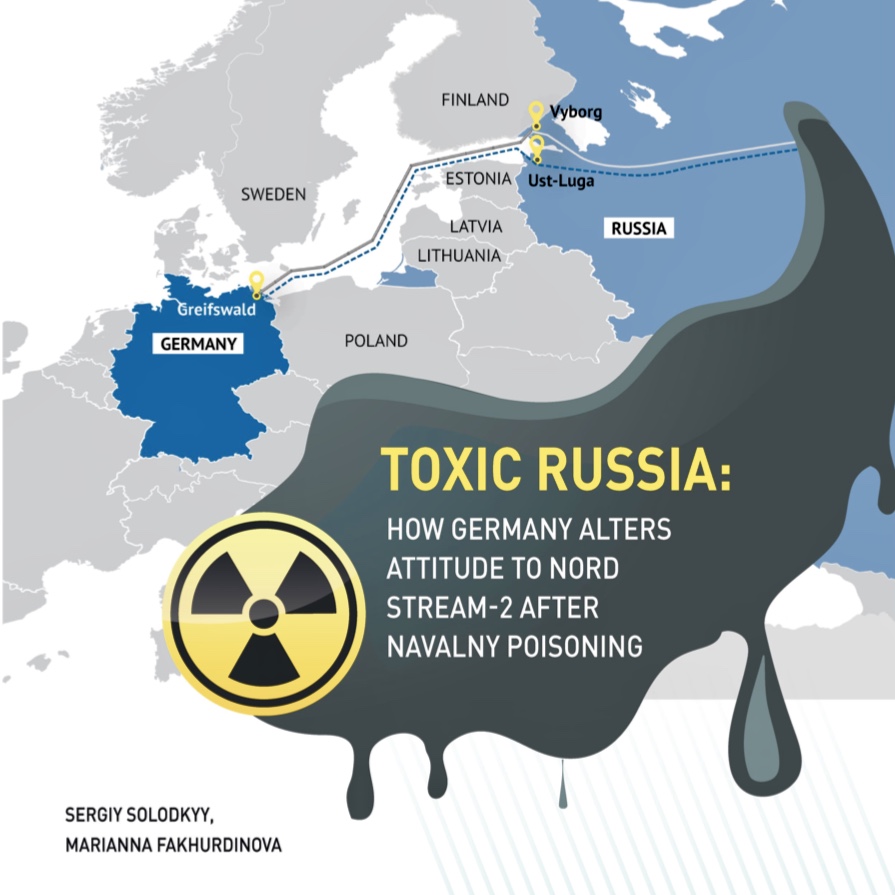It is not the first time that Russia is caught in flagrante delicto, be it related to military aggression against post-Soviet countries, evidence of its interference with elections in the West or exposure of Russian- led cyberattacks… The list is not exhaustive.
These days, we are witnessing yet another dramatic turn of events as the German authorities report about the poisoning of Aleksey Navalny, a famous opponent of the Kremlin, with a substance from the Novichok group. But while the government of Germany is expecting an official explanation from Moscow, many prominent German politicians have already spoken: Russia must have been involved.
This news has caused a burst of resentment in Germany, and the government is being urged to impose stricter sanctions on Russia, particularly with regard to the notorious Nord Stream-2 pipeline nearing its completion. Energy experts stress that only sanctions can prevent its launching.
Given such new circumstances, the analysts of the New Europe Center have explored the likelihood of restrictions against the Russian-led project.
PDF-version of the policy brief by Sergiy Solodkyy and Marianna Fakhurdinova is available here.
Published within the framework of the Think Tank Development Initiative for Ukraine carried out by the International Renaissance Foundation in partnership with the Open Society Initiative for Europe (OSIFE) with the financial support of the Embassy of Sweden in Ukraine.
The publication expresses the views and opinions of the authors and does not necessarily reflect those of the Embassy of Sweden in Ukraine, the International Renaissance Foundation and the Open Society Initiative for Europe (OSIFE).








